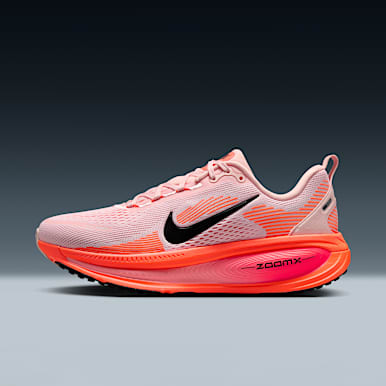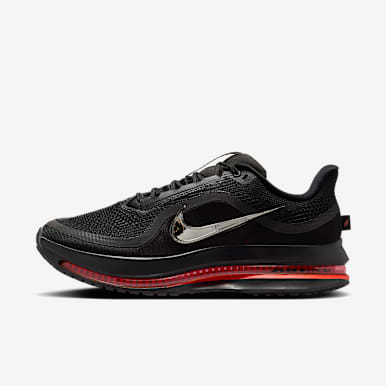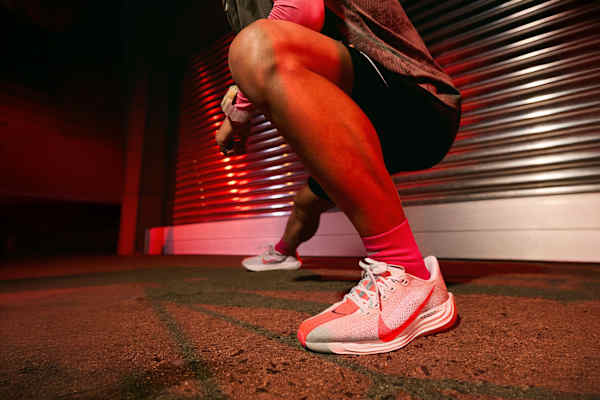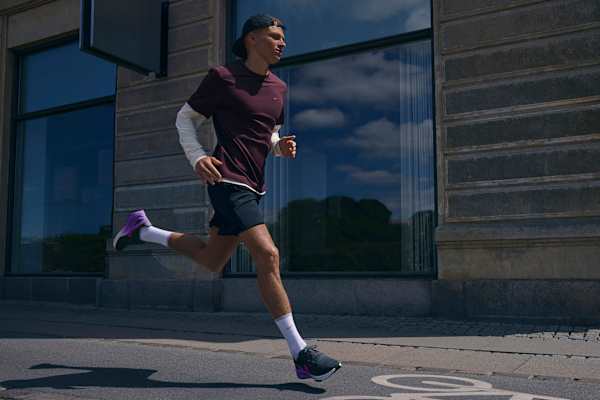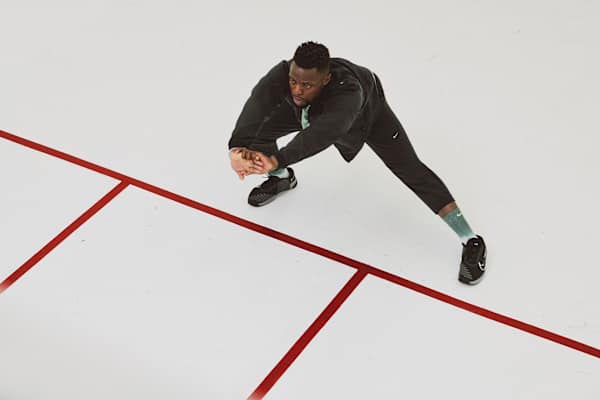What is tower running?
Sports & activity
This type of racing is the ultimate uphill battle.

Cross a hiker reaching the summit of a steep mountain with a sprinter winning a 40-yard (37 metres approx.) dash, and you've got the satisfying and challenging sport of tower running. Vertical running, running stairs or stair-climbing racing—as it's also known—involves racing up man-made structures, usually internal stairwells at skyscrapers. The worldwide sport features athletes ascending iconic buildings each year, receiving the ultimate reward of panoramic views post-race (and prize money, in some cases). Here's what you need to know to get started in this organised sport that's all about high-intensity cardiovascular exercise.
What is tower running?
Instead of running on the ground, athletes sprint up tall structures. These short, organised races include one-lap sprints, quarter-mile laps and full-mile laps, with competitors typically timed only on their ascents.
What are tower running benefits?
A rigorous and efficient full-body workout, vertical running offers many benefits, including building strength. "Running up the stairs is specifically beneficial to the strength of the quads, glutes, hamstrings and calves", Nike Wellness Coach Courtney Fearon says.
It's more than a taxing lower-body workout. "Your core muscles and heart and lungs work overtime too, as the incline of stairs is a major challenge to overcome and more taxing on your cardiovascular system than other cardio activities done at the same intensity", Fearon says. According to a 2005 study published in the British Journal of Sports Medicine, women who climbed stairs for exercise boosted their VO2 max (the amount of oxygen the body absorbs and uses while working out) by 17.1 percent. (Generally, a higher VO2 max means greater physical fitness.)
On a practical level, tower running requires no specialised equipment and delivers lots of caloric burn in less time than other types of cardio, like jogging.
How do you train for tower running?
"Using the same principles as for other forms of running, you can build a varied programme", Fearon says. "Think interval sessions, slow long endurance climbs, speed climbs with longer recoveries between efforts and resistance training to build up muscular strength endurance", he adds. Along with training your lower body (for instance, with squats, lunges and step-ups), devote time to your upper body (consider push-ups, rows, arm raises and curls). After all, hoisting yourself up steps via handrails recruits the push-pull muscles.
To prep for vertical runs, train on treadmills with high inclines, stair-climbers, stairs and steep uphill hikes. As you build your skills, gradually increase your vertical mileage, like you would with horizontal mileage if training for a marathon.
How do you prepare for a stair climb race?
Along with implementing a training plan months ahead, prep in the weeks and days beforehand. "Get plenty of rest, fuel and hydration (including electrolytes)", Fearon counsels. Then, on race day, dress in breathable and moisture-wicking fabrics to absorb your sweat as you ascend.

Where can I race?
Ever dreamt of visiting Singapore or haven't yet made it to Italy? Consider a "runcation", combining destination racing with traditional tourism. To pay homage to the history of this sport, visit the Eiffel Tower (thought to have been the site of the first tower racing event in 1905). Or choose from other noteworthy buildings hosting hundreds of organised tower races each year. For the full list of international events, check out the Vertical World Circuit and Towerrunning World Association. Meanwhile, Tower Running USA compiles information on domestic races. Here's a sampling of skyscrapers and their competitions.
- Empire State Building (New York City): Empire State Building Run-Up
- Swissotel The Stamford Singapore (Singapore): Swissotel Vertical Marathon
- Willis Tower (Chicago): SkyRise Chicago
- Eiffel Tower (Paris, France): Eiffel Tower Vertical Race (La Verticale de la tour Eiffel®)
- KL (Menara) Tower (Kuala Lumpur, Malaysia): KL Tower International Towerthon
- Taipei 101 (Taipei, Taiwan): Taipei 101 Run Up
- Abeno Harukas (Osaka, Japan): Harukas Skyrun Beyond
- Allianz Tower (Milan, Italy): The Allianz Vertical Run
- Tower 42 (London, England): Vertical Rush
Words by Dina Cheney
